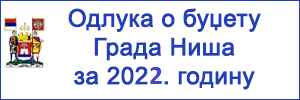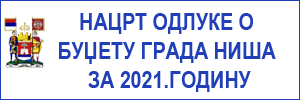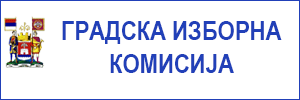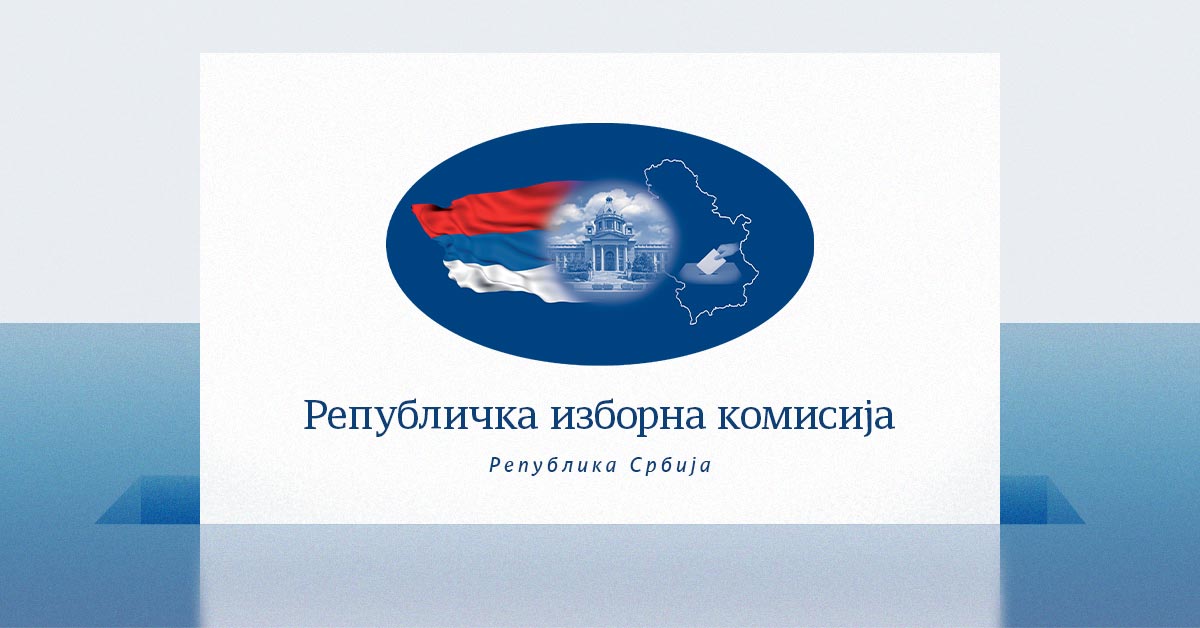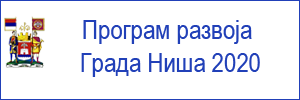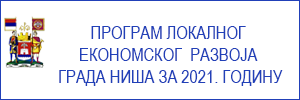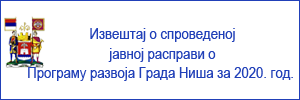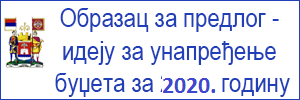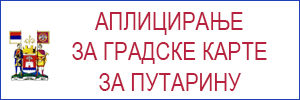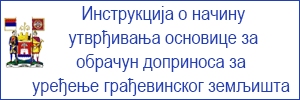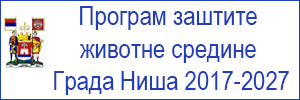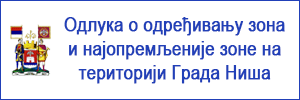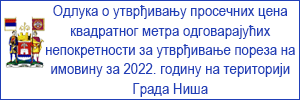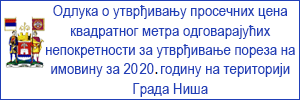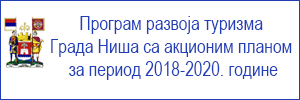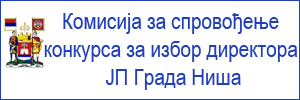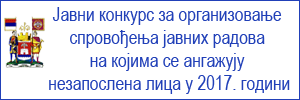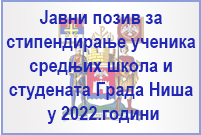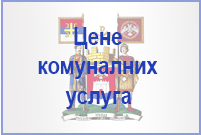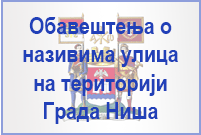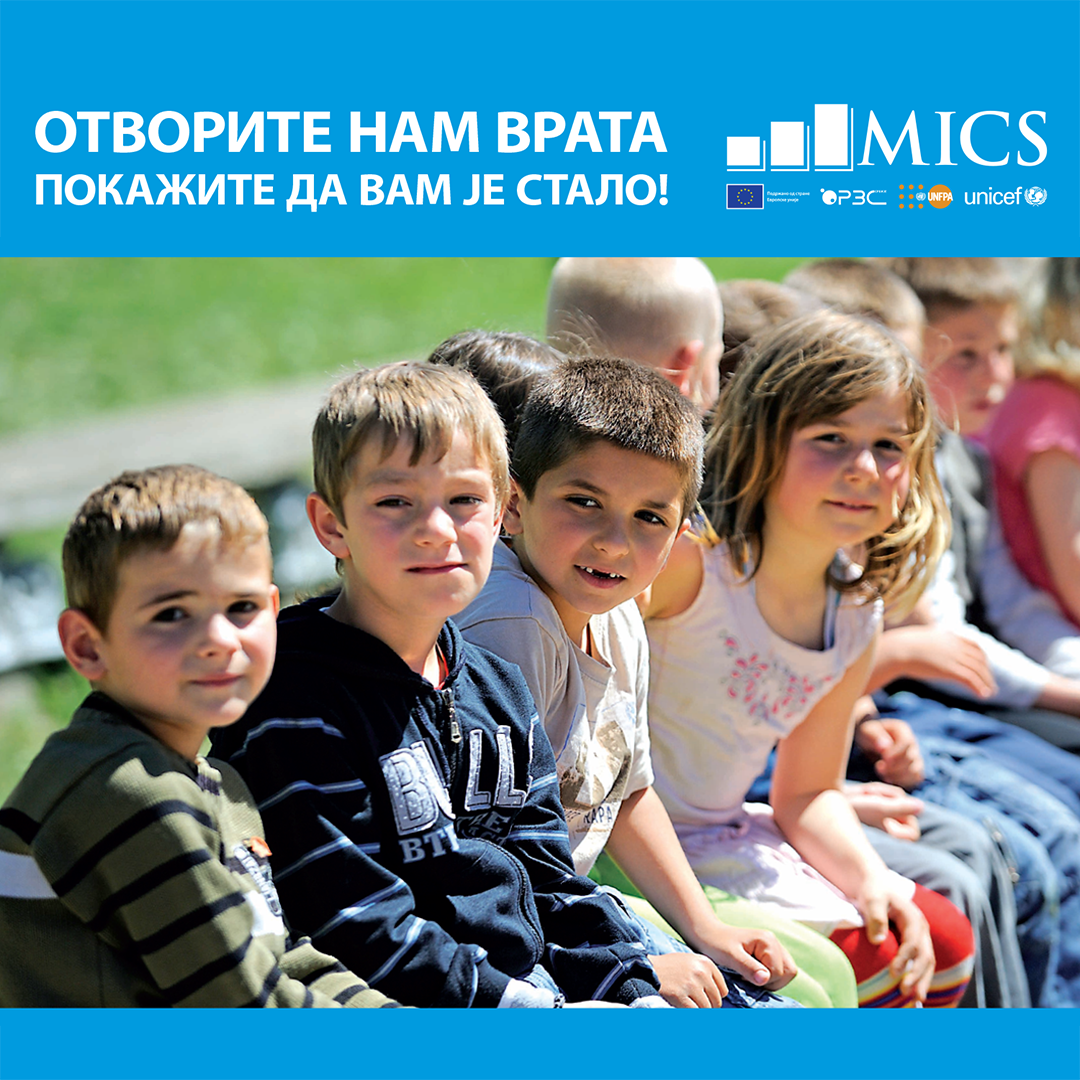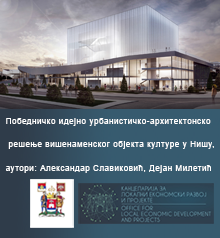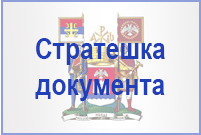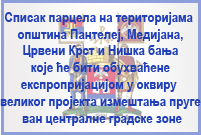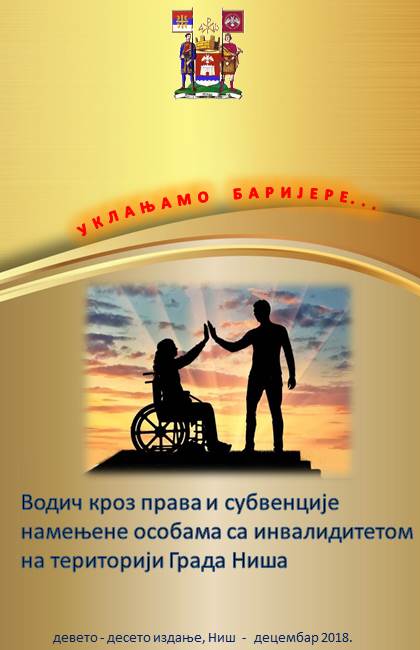2021
- Niš City Mayor Dragana Sotirovski and the Head of the UN Refugee Agency (UNHCR) in Serbia Francesca Bonelli met at Niš City Hall and talked about the position of migrants and further cooperation. It was the opportunity for UNHCR to point out the contribution of City of Niš in accepting underage migrants without parents and personal documents, as well as the conditions for the migrants’ stay in the Niš resort in Divljana. The issue of migrants who have already received or will eventually receive asylum in our country was especially discussed in the conversation. This gives the two sides the opportunity to improve and further expand cooperation, including those citizens of Niš who belong to vulnerable categories of the population. The participants in the meeting agreed to continue talks on actual plans for co-operation and mutual assistance.
- On the occasion of the Energy Community Just Transition Forum, 9 Western Balkan municipalities (Banovići, Kakanj, Lukavac, Maglaj and Tuzla from Bosnia and Herzegovina, Pljevlja from Montenegro, Bitola from North Macedonia and Niš and Novi Sad from Serbia) came together virtually to sign a declaration launching the Clean Air Regions Initiative (CARI). By signing the declaration mayors of the nine participating municipalities committed to undertake voluntary measures aimed to reduce air pollution in their municipalities. CARI is an initiative launched by the Vienna-based Energy Community Secretariat and supported by the Hungarian Western Balkans Green Center (WBGC). The Energy Community is an international organization established by the signing of the Energy Community Treaty in 2005 in Athens, with the aim of expanding the EU’s internal energy market to the region of Southeast Europe and the Black Sea region. The main tasks of the Energy Community are: to establish a stable regulatory and market framework in South East Europe and the EU in order to attract investment in the electricity and natural gas sectors, in order to enable a stable energy supply, necessary for economic development and social stability; to create a single legal framework for electricity and gas trade in Southeast Europe and the EU; to improve security of supply by ensuring a stable investment climate and strengthening ties with other regions of Europe, Africa and Asia; to protect the environment, increasing energy efficiency and the use of renewable energy sources in the region, developing a competitive energy market and taking advantage of economies of scale.
CARI focuses on the most critical sources of pollution such as domestic heating, industry and traffic. Participating municipalities, with the support of the Secretariat and the WBGC, will strive to develop, adopt and implement local air quality action plans with ambitious policies and measures, share their experiences and learn about progress and achievements in other regions and municipalities. In the meantime the municipality of Živinice (Bosnia and Herzegovina) signed the declaration on the Clean Air Regions Initiative, raising the number of participants to ten. A two-day workshop to kick off work on developing ambitious local air quality policies and measures in line with the aims of the CARI declaration was held. Participating municipalities exchanged good practices and experience with their EU counterparts, attended trainings on the introduction of measures capable of reducing pollution into the air by addressing the most critical sources of pollution such as domestic heating, industry and traffic. Furthermore, the workshop included presentations on topics such as data collection, public participation and air pollution measurement technologies.
2020
- The Government of Sweden-funded United Nations Development Program (UNDP) Project Platform for Responsible Public Financial Management will work to strengthen partnerships between local government units and civil society by building a more transparent approach to funding civil society organizations from local government budget in accordance with local needs. The project will also contribute to the implementation of the Sustainable Development Goals of the 2030 Development Agenda. In accordance with the principles of participatory democracy and European Union standards the priorities are strengthening responsible local government, transparency and governmental actions towards the needs of citizens, as well as enhancing public and citizen participation in public policy-making. The Sustainable Development Goals are a universal call to action to eradicate poverty, protect the environment and ensure peace and prosperity for all. The aim of the project is to provide technical support to selected local governments: Bac, Raska, Vrnjacka Banja, Valjevo and Nis to adopt and implement a more transparent, development-oriented and project-based approach to NGO funding over the next two years. They will commit themselves to allocate funding for NGO projects more transparently, that is, to apply transparent criteria and procedures in the allocation of public funds and to allow a participatory approach in defining local priorities
- The Government Accountability Initiative is (GAI) is a four-year, $8.5 million activity intended to foster government accountability and to increase connections among and between government bodies and members of the public. GAI supports accountability at all levels of government in Serbia through three parallel components: – (1) selected local self-governments, (2) independent oversight institutions and (3) specialized anticorruption courts and public prosecutors. GAI’s expected results are: Increased public participation in local government decision making and oversight; Enhanced government performance and accountability through risk-based prevention and detection of corruption; Increased efficiency in adjudication of corruption cases by courts and prosecutors. Within the project, the City of Niš was granted technical assistance in the areas of strengthening transparent, inclusive and accountable local government, in line with the project objectives. This includes providing appropriate technical support, including training focused on local government transparency and public participation in decision-making, as well as the opportunity for the City of Nis to participate in other activities that may include exchanging experiences between local governments, training on specific topics relevant to local governments and discussions on relevant policies.
2019
- The workshop on open data and innovation was held at the Center for Innovative Entrepreneurship of Youth in the context of the activities with which the City of Nis this year marked European Week of Local Democracy, with the desire to build standards in establishing, functioning, assessing and protecting the level of government closest to citizens and thus ensuring effective participation of the members of the local communities in deciding about things that are of concern for their everyday life. The value of opening data when it comes to quality decision-making and data-driven planning, as well as activating the vast practical, economic and creative potential of opening up a wide range of information and diverse data that the public sector collects and which in some ways has been “captured”, was highlighted. Now, this data is available in machine-readable form to citizens and the business community for the purpose of creating new opportunities for the development of the startup community, the economy and employment, as well as new values through new information, analysis and services. The workshop discussed the concept of open data as well as examples of their use and good practice in Serbia and worldwide. The participants were also presented the results of the project that was implemented by the City of Nis Office for Local Economic Development and Projects in cooperation with the organization Palgo Smart within the framework of the national project Open Data – Open Opportunities. The City of Nis published a large number of data sets on the national open data portal. In the practical part of the workshop, through teamwork, new solutions to specific problems and challenges were devised based on the use of open data. The data opening in the City of Nis is supported by y the United Nations Development Program and the RS Office of Information Technology and Electronic Administration, with financial support of by the United Kingdom Good Governance Fund (GGF) and the World Bank.
- The satisfaction with local self-government authorities, administrative services and civil servants has been increasing continuously, and now almost one in two citizens in Central Serbia feels that local self-governments are taking care of their citizens and providing them with services adequate to their needs. This is demonstrated by the results of the public opinion poll implemented within the Swiss PRO programme, supported by the Swiss Government. The survey was implemented by CeSID, on a representative sample of 11,387 adult citizens in 50 towns and municipalities in the Region of Šumadija and West Serbia and the Region of South and East Serbia. After the 2010 results with only 22 percent of respondents feeling that local authorities were taking care of their citizens, a rising trend has been recorded, with 26 percent in 2013, 37 percent in 2017 and the last survey results show that 45 percent of respondents feel positively about the treatment of citizens by the local self-government. Even though the perception that local self-governments are trying to meet their citizens’ needs is enhancing, still one-third of respondents feel that local authorities mostly do not respond to their citizens’ needs, and 12 percent feel that they do not respond to them at all. The Presentation of citizens’ views was held in Nis at Nis City Hall. A detailed analysis of the results is available on the Swiss PRO website (ttps://www.swisspro.org.rs/uploads/files/166-666-citizen-satisfaction-survey.pdf). On the behalf of the City of Nis, the attendees were greeted by the Assistant Mayor Marina Kostic. The City of Nis has been doing a great deal in the last few years to improve the quality of life in the local community, especially in terms of increasing the level of services provided by local self-government.
- Switzerland has been pioneering support to the development and modernization of local assemblies in Serbia. Most recently, through the project “Strengthening the Oversight Function and Transparency of the Parliament – Phase 2”, implemented by the United Nations Development Programme (UNDP), Switzerland supported the introduction of digital platforms to modernize the work of local parliaments. The City of Nis Assembly is the first in Serbia to use software version adapted to the work of Nis parliamentarians. The system ensures greater efficiency of the Assembly’s work, saves money and allows for more users to simultaneously search for information, while having access to documents at all times. In addition to these benefits for the members of the parliament (MPs), e-parliament also makes the work of local assemblies more transparent and accountable for citizens. Apart from the development of the e-parliament, Nis was supported in preparing amendments to the Rules of Procedure regarding the City assembly’s transition. The Rules of Procedure will enable Nis City Assembly to adapt its work to digital way of working, as well as electronic voting, thus significantly reducing the time and cost of assembly sessions. Overall, the Swiss Government and UNDP assistance for the Nis Assembly encompasses 78 tablets, as well as expert support with a total value of 150,000 EUR. It is estimated that the City of Nis will thus save over 2 million dinars annually, which is the amount of savings in printing assembly materials. “Strengthening the Oversight Function and Transparency of the Parliament” Project is supported by Switzerland with 1,7 million EUR with the aim of achieving a more transparent and efficient work of the National assembly and local assemblies across Serbia.
- The conference entitled “Localization of Sustainable Development Goals – Achieving 2030 Agenda” was organized at the City Hall in Niš, by the Cabinet of Minister without portfolio responsible for demography and population policy Mrs. Slavica Djukic Dejanovic, in cooperation with the German Development Cooperation Agency and the Standing Conference of Towns and Municipalities. This activity aims at raising awareness of the 2030 Agenda and localizing the sustainable development goals by linking with local strategies and other planning documents. Monitoring of sustainable development indicators at the level of local self-government is of particular importance and cooperation between local governments and non-governmental organizations in pursuit of the sustainable development goals. The Sustainable Development Goals are a universal call to action to eradicate poverty, protect the environment and ensure peace and prosperity for all, based on the success of the Millennium Development Goals. Sustainable development is based on the cooperation of the economic, social and environmental aspects, and the achievement of all 17 sustainable development goals is interconnected and at the local level involves the partnership of local governments, civil and private sector, as well as citizens.
- International Conference Opportunities for Expanding Economic Cooperation between Russia and the Balkan Peninsula within the Current Political Situation was held at the Regional Chamber of Commerce in Nis, organized by the Balkan-Russian Economic Forum with the support of A.M.Gorchakov Public Diplomacy Support Fund of the Ministry of Foreign Affairs of the Russian Federation and the City of Nis. The aim of the conference was to create the platform for the exchange of knowledge, information and contacts in order to expand trade and investment, which was also in the spirit of the intentions of the interstate Serbian-Russian commission for economic cooperation and technical development, which intended to increase trade between Serbia and Russia.
- Nis City Mayor Darko Bulatovic met with UNDP and UNHCR representatives in Serbia about the assistance these organizations has been providing to the city in the implementation of projects of particular importance to national minorities. UNDP Strategic Plan focuses on key areas such as poverty reduction, democratic governance, peacebuilding, climate change and disaster risk and economic inequality. UNDP supports governments in integrating sustainable development goals into their national development plans and policies. Achieving the Sustainable Development Goals involves partnering governments, the private sector, civil society and citizens to ensure a better living environment for future generations
- The delegation of the City of Nis participated in the Second International Forum of Old Towns in the Russian city of Ryazan, which was held under the auspices of the Committee of the Russian Federation for UNESCO, organized by the Ministry of Culture and Tourism of the Ryazan region. The requirement for participation in this Forum was that the city was over 500 years old. The main topics of the Forum were architecture, history, cultural heritage, theater, photography and gastronomic tourism, and the first session of the Association of Old Towns was held during this event. Representatives of the City of Nis participated in the work of the Forum on three topics – possibilities and directions of cooperation of ancient cities, Nis cultural heritage during its two thousand years of existence and implementation of measures for the improvement of squares, river banks, streets, pedestrian zones, parks and other public areas. The organizers pointed out that the holding of this Forum should serve to strengthen and develop cultural links between cities, regions and countries.
- City of Nis has joined a group of 210 cities across Europe, representing 62 million citizens, whose mayors and leaders demanded that the European Council and Member States intensify EU commitment to climate change, show global leadership and take an ambitious approach to lead rapid advances in the implementation of the Paris Agreement. The open letter, signed by the leaders of cities from 21 EU member states and 7 neighboring countries, was published ahead of the Future of Europe conference in Sibiu, Romania (https://energy-cities.eu/policy/cities-call-for-a-more-sustainable-and-equitable-european-future/). Their demands include: developing a fair and inclusive European long-term climate strategy that will increase resilience to climate change and ensure that greenhouse gas emissions are more than halved by 2030 by 2020 and reach zero net emissions by 2020 2050; advance the EU climate and energy targets by 2030 and targets set at national level to ensure a rapid, equitable and climate-resilient energy transition in line with the above objectives; aligning the next long-term EU budget with this strategy, eliminating fossil fuel subsidies and making climate action a priority in all funding programs; obliging all EU Member States to set binding zero net emission reduction targets and other targets above.
- The new cooperation agreement for the project “Supporting Socio-Economic Stability in the Region of the Western Balkans 2019-2020” financed under the German Development Cooperation was signed with German organization HELP-Hilfe zur Selbsthilfe e.V.. The project objective is to increase the capacity of economically and socially vulnerable population groups and to improve treatment programs in institutions for the enforcement of criminal sanctions and reintegration processes and their full involvement in society. The value of the Project for the City of Nis is 72,000 euros, of which the City co-finances the project in the amount of 28,800.00 euros and the Government of the Republic of Germany with funds in the amount of 43,200.00 euros. The project will be implemented in the territory of the City of Nis until December 31, 2020. The project is based on educational and economic support to the local development of the City of Nis, with the implementation of mechanisms for strengthening the development of micro businesses in the city. The main activities will concentrate on the direct opening of new jobs, through the help to small businesses in the form of grants, organizing business and vocational training. HELP-Hilfe zur Selbsthilfe e.V. will support the implementation of existing local development strategies and support the sustainable development process as a whole. Within the project, at least 30 micro businesses in Nis will be supported in their intentions for starting or developing business activities. Support includes: donation in equipment or material with an average value of EUR 2,400.00; organization of business and professional training according to users’ needs.
- USAID and the Cities of Nis, Pancevo, and Cacak signed Memoranda of Understanding (MOUs) to help their district heating plants become more energy efficient. The project for energy efficiency in Serbia will last two years and its value is 2.1 million dollars. The aim is to reduce energy consumption through improved heating efficiency at the local level. USAID will provide technical equipment and advisory services to Nis, Pancevo, and Cacak to increase heating energy efficiency, which will reduce the amount of fuel needed to meet consumer demand.
- City of Nis joind the Project Open Data – Appear on the Map implemented by association PALGO smart which is supported within the Platform Open Data – Open Opportunities implemented by the Office for IT and E-Government and UNDP Serbia, with the support of the World Bank, the Good Governance Fund of Great Britain (GGF) and the Swedish International Development Cooperation Agency (SIDA). The project provides support to institutions in the process of opening up their data, but it also supports IT companies, civil society organizations and others who are interested in using this data creatively. Opening of the data owned by public institutions for their reuse is a strategic commitment of the Government of the Republic of Serbia and it is reflected in the Strategy for e-governance development in the Republic of Serbia for the period from 2015 to 2018 and in the Action plan for the implementation of the international initiative Open Government Partnership (OGP) in the Republic of Serbia for 2016 and 2017. The project follows the recommendations set out in the Open Data Readiness Assessment conducted by UNDP and World Bank. On a wider scale, the project will contribute to efficient implementation of the Public Administration Reform Strategy and bring Serbia closer to the best European and global practices in the field of good governance. The purpose of the cooperation of the City of Nis in the Project is to raise awareness of the need for quality collection, input and reuse of data, to introduce the concept and mechanisms of the process of opening data in the City of Nis administration, to improve the capacity of the City of Nis through mentoring, as well as to open datasets on the web site of the City of Niš and on the National Open Data Portal.
- The City of Nis has accepted cooperation on the project Energy Efficiency in Public Buildings-DKTIEE, implemented by Deutsche Gesellschaft für Internationale Zusammenarbeit (GIZ) GmbH, supported by the Ministry for Economic Cooperation and Development of Germany, in partnership with line ministries in the Republic of Serbia: the Ministry of Mining and Energy, which is in charge of energy, efficient use of energy and energy efficiency, as the main political partner, as well as with the Ministry of Construction, Transport and Infrastructure, which is in charge of energy in building efficiency. GIZ and the City of Niс will cooperate to improve energy efficiency in public buildings at the local level by encouraging decision-making on the rehabilitation of buildings and developing the capacities of relevant stakeholders.
2018
- The City of Nis has joined the ROMACTED Programme Promoting Good Governance and Roma Empowerment at Local Level, which, with the support of the European Union in Serbia, is implemented by the Council of Europe, on the basis of the agreement between the European Union and the Council of Europe. ROMACTED results from the experience of the ROMED and ROMACT programmes and will reflect upon the adaptation of these methodologies and activities to each beneficiary and selected location, in order to fit into the policy cycle and the dynamics and reality of each municipality, and thus bringing an additional input to existing policies and practices for an effective and more inclusive functioning. One of the leading guidelines in the methodology of the programme is that participation in local governance can only be effective if it is context-appropriate. Thus, a preliminary mapping, assessment, baseline survey and research are done in each selected municipality so as to facilitate the adaptation of the programme and its support and monitoring of the process. In addition to the Strasbourg-based team, the programme will have project officers in the Council of Europe offices in Albania, Bosnia and Herzegovina, Kosovo, Serbia, “the former Yugoslav Republic of Macedonia and Turkey and a national support team from Roma civil society in each of the beneficiary countries. The aims of the programme are to: strengthen political will and support local development through capacity-building of local authorities and effective participation of Roma citizens in local plans and projects; empower the Roma citizens- on the individual level (assisting people to practice their basic rights and to expand their capacity and skills), as well as on the community level (assisting people to get organized to voice their interests around community problem-solving); improve and expand the institutions’ commitment, capacities, knowledge and skills in working for Roma inclusion, putting into practice the concepts of good governance.
- A unique pilot-project Blockchain-Based Diaspora Remittances in the City of Nis has officially begun. The initiative enables quicker and safer money transfer from abroad to the recipients in Nis, with a significantly lower commission. The project is implemented in cooperation between UNDP and the City of Nis and the Local Economic Development Office. Media and Reform Center Nis is responsible for the promotional campaign. The project is open to all the citizens from abroad who send funds to their loved ones in Nis. A sender from abroad simply logs in to a secure platform donated by the AID: Tech company, and sends funds in the amount of 100 dollars or 100 euros using blockchain technology. Once the payment is made, the recipient in Nis gets a QR code on his mobile phone or email address. By electronic readout of this code, the recipient in Niš can use the received funds to purchase goods in selected grocery stores in Nis, and to pay the Public Utility bills. More detailed information is available at the portal sigurnoilako.rs.
- The Workshop Placemaking organized by the World Bank, the Republic of Austria and the Urban Partnership Program was held in Nis. Apart from the representatives of the Belgrade Urban Planning Institute, the associates of the Belgrade Chief Town Planner, the representatives of the RS Ministry of Construction, Transport and Infrastructure, the employees of the Urban Planning Institute Nis and Novi Sad and other experts from professional and educational institutions in the field of architectural and urban design participated. On this occasion, “placemaking” planning technique was presented with the aim of activating open public areas. Participating urban planning was discussed, as well as the economic, social and cultural impact of placemaking with the aim of creating added value for the surrounding environment. The importance of involving inhabitants and other users of space in the planning process, gathering ideas on the use of public spaces and activating citizens and local enterprises in the collective development of urban projects was emphasized. The focus of the workshop was part of the Nisava riverbanks in the central city zone, and the participants, through the analysis of the location, team work and the application of the presented methods, created suggestions for activation and regulation of the subject area.
- The Western Balkan Investment Framework (WBIF) will support with a total of € 5.5 million in grants the development of project and technical documentation for the construction of the bypass around Nis and the modernization of the railway line Nis-Presevo-Border line with Macedonia. The decision on financial support for preparation of technical documentation for these two projects WBIF Board of Directors presented to the Ministry of Construction, Transport and Infrastructure. Of the total amount, two million euros were approved for the development of a project for a building permit for a one-way railway track bypass around Nis, as part of the modernization of the railway line on Corridor 10 from Nis to Dimitrovgrad, while € 3.5 million was designated for the development of the conceptual design together with the feasibility study and Environmental Impact Assessment Study for Modernization of the Railway on Corridor 10, section Niš-Presevo-Border with Macedonia.
- Deputy Prime Minister and Minister of Construction, Transport and Infrastructure Zorana Mihajlovic spoke with the President of the European Investment Bank, Dario Scannapieco about current and new infrastructure projects implemented with the support of the EIB. The meeting, held in the Government of the Republic of Serbia, was attended by Nis City Mayor Darko Bulatovic. The contracts for the modernization and reconstruction of the Nis-Dimitrovgrad railroad were also signed, which was of great importance, as it meant continuing the modernization of the strategically important direction of Corridor 10 and even better connections with the region and Europe.
2017
In November 2015 at the initiative of the Ministry of the Interior of the Republic of Serbia, the OSCE Mission to Serbia (Organization for European Security in Serbia) and the Standing Conference of Towns and Municipalitie Local Security Councils were launched. Their main goal was to promote the partnership of local self-government and the police, i.e., to institutionalize this partnership through local security councils. The councils are foreseen to be a mechanism for communicating and advising local authorities, the police and other factors important for local security (representatives of all important state and local institutions, health, education, social work centers, non-governmental organizations) in order to make the city safer. In October 2016, the OSCE Mission to Serbia held a two-day seminar for the members of the Security Council of the City of Nis in order to increase the capacity of the Council’s work. During the seminar the City of Niš Security Council agreed that the necessary strategic documents needed to be developed for further quality and successful work of the Council. After the seminar the OSCE Mission in Serbia confirmed cooperation in raising the capacity of the Council and engaged an independent expert working with the members of the City of Nis Security Council to draft the Draft Strategy for City Safety for the period 2017-2020. The draft Strategy was at the final stage of its deliberations and it was expected to be adopted by the members of the Council. In February and May 2017, the OSCE Mission organized two workshops for the members of the Council to identify and define the strategic goals of the Strategy together with OSCE expert. During 2017, the OSCE Mission also organized the workshop “Prevention of Violent Extremism and Terrorism” and “Improvement of Internal and External Communication of the City of Ni Security Council”. In September 2017, the City of Nis and the OSCE Mission to Serbia signed the Memorandum of Understanding for the implementation of activities under the project “Combating the Threats of Violent Extremism and Radicalization in Serbia through a System of Prevention and Early Warning in the Community”, as well as the Grant Agreement Memorandum for technical equipment and office furniture for educational classroom. Educational classroom is intended for the needs of local police officers to improve prevention of domestic violence, peer violence and hooliganism, in order to better prepare for preventive activities in order to improve the safety of citizens and provide urgent support to citizens; and for one computer to the Emergency Management System in Nis, as a technical support for interventions and providing emergency support to citizens.
- The United Nations Development Program financed the training for 76 people employed by the City Administration, as well as with direct and indirect users of the city budget, in order to improve energy efficiency in the City. These were people who worked in preschool institutions, schools, local community offices and other facilities, and 76 of them covered a total of 220 buildings in the city. The project was being implemented in cooperation with the Ministry of Mining and Energy. The project was funded by the Global Fund for Environment with 2.5 million and it aimed to introduce energy management in the public sector and increase the energy and cost efficiency of public facilities and communal services.
- The meeting of the National Platform for Social Inclusion of Informal Waste Collectors was held in the City Hall on the occasion of the launch of the one-year project Support to Integration into the Labor Market and Formal Waste Management of Roma, Migrants and Other Vulnerable Groups. The goal of this project is to fulfill the possibility of solving the problem of informal waste collectors in Nis through the introduction of an appropriate system for their registration. This system would simplify the monitoring of waste movement and enable marginalized groups to become legally involved in the waste management system. The project is implemented in cooperation with the Ministry of Public Administration and Local Self-Government, the Ministry of Environmental Protection of the Republic of Serbia, the Serbian Chamber of Commerce and the City of Nis. The realization of the project was made possible by the German Development Agency-GIZ.
- The European Union defines public administration reform as one of three pillars of enlargement for the countries of the Western Balkans, together with the rule of law and economic governance, and therefore, for several years now, public administration is the fundamental reform area in our country. The Council of Europe and the European Union recognized the challenges that local governments in the Republic of Serbia face in their development and supported the Ministry of State Administration and Local Self-Government in initiating and implementing the project “Human Resource Management in Local Self-Government”. The overall objective of the project is to improve the efficiency and administrative capacities of local self-government units through the establishment of a professional training system and the improvement of the human resources management in order to reach a greater degree of efficiency and citizen satisfaction with the work of local self-governments. The project was launched in early 2016 and it would be fully implemented by the end of 2017 in partnership with the Ministry of State Administration and Local Self-Government and the Standing Conference of Towns and Municipalities. The total budget of this project is 2 million Euros and it is funded by the European Union and the Council of Europe. The Council of Europe launched a public call for city and municipality administrations and 20 pilot municipalities have been chosen (Bac, Belgrade, Bujanovac, CaCak, Kragujevac, Kraljevo, Loznica, Medvedja, Niš, Novi Sad, Pancevo, Raska, Savski venac, Smederevo, Stari grad, Svrljig, Trstenik, Valjevo, Zrenjanin) to participate in the project related to the improvement of the human resources management. So far the chosen cities and municipalities have adopted human resources management policies; a set of training for employees in the field of human resources management was held; the rules on internal organization and job classification and other relevant documents have been improved; municipalities and cities for the first time started the process of analyzing the needs for professional development and planning of employee capacity development.
- The President of the City Assembly of Nis Mr. Rade Rajkovic, at the invitation of Mayor Bonn, and as a representative of the Political Committee of the Council of European Municipalities and Regions, participated at the UN Annual Conference on Climate Change. This is one of the largest gatherings under the auspices of the UN, which gathers representatives of all UN member states at the highest level, representatives of the NGO sector and activists. The main topics of this year’s November UN Conference in Bonn (COP23) were the levels of implementation of earlier major climate change agreements from Rio, Kyoto and Paris, as well as the latest challenges involving extreme events such as major fires, floods, storms and tropical heat. What is significant for the City of Nis is that for the first time, since the UN Conference on Climate Change has been held, equal participation has been taken by representatives of the regions and leaders of local governments around the world, within the Special Climate Summit of local and regional leaders, as the official COP23 part.
- Nis City Mayor Darko Bulatovic and and UNICEF Representative in Serbia, Michel Saint-Lot, officially opened a photo exhibition – UNICEF: 70 Years in Serbia at the central city square in Nis. The photo exhibition depicts seven decades of UNICEF’s dedicated work in Serbia. It spans from 1947, when the first humanitarian aid shipments were sent to children and families in the former Yugoslavia, up to the present day.
- Nis City Mayor Darko Bulatovic accompanied by World Bank’s representatives and Novak Djokovic Foundation visited the primary school Milan Rakic and the reconstruction and adaptation works being carried out in the old school building with the goal of opening the new kindergarten for over 100 boys and girls, 3-6 years old, from Medosevac and neighboring places. The Novak Djokovic Foundation provided funds in the amount of EUR 86,000 for the full reconstruction of the façade and interiors and equipping of the facility with modern furniture, didactic materials, books and toys. The reason for the World Bank’s visit is the implementation of a new EUR 47 million Inclusive Early Childhood Education and Care (ECEC) Project in Serbia. The ECEC project will support an increase in preschool facilities and the availability of qualified teachers, and include measures to enhance access of vulnerable groups through a targeted grant scheme for participating municipalities. The Inclusive Early Childhood Education and Care Project builds on the Early Wins for Lifelong Returns partnership to promote early childhood development that was launched by the World Bank and the Novak Djokovic Foundation in August 2015. This partnership combines the Bank’s deep knowledge and programs on ECD with the commitment of Serbian tennis champion Djokovic to bringing attention to the social and economic benefits of ECD programs for children around the world.
2016
- The representatives of the City of Nis participated in the two-day Association of European Cities of Culture (AVEC) Conference in the Hungarian town of Szombathely, City of Nis is a full member of AVEC.
- The first European Prize for Heritage for Serbia awarded to the Nis Institute for the Protection of Cultural Monuments was officially promoted at the multimedia exhibition “Gostusa – Village in the Stara Planina Mountain” in the Gallery of Contemporary Fine Arts in Niš. The award of the European Union and the Europa Nostra Prize 2016 for the conservation of the stone village of Gostusa, besides the financial ones, has brought many other benefits such as the intensification of rural promotion, richer photo and video documentation for Nis Institute for the Protection of Cultural Monuments which this year celebrated half a century of existence.
- The Serbian delegation that visited Strasbourg on the occasion of the 30th Congress of Local and Regional Authorities of the Council of Europe, led by the Mayor of Nis, Mr. Zoran Perisic met, in the presence of the ambassador of the permanent mission of Serbia at the Council of Europe Zoran Popovic, with the Secretary General of the Council Europe Andreas Kiefer. Our delegation handed the invitation to Mr. Kiefer to monitor the upcoming local and paralamentary elections that will be held on April 24th. The Serbian delegation discussed with high official the European Charter of Local Self-Governmentsto which Serbia had some remarks. The delegation also met with the Mayor of Strasbourg.
- The 30th Session of the Congress of Local and Regional Authorities of the Council of Europe was held in Strasbourg. The head of the Serbian delegation at this important meeting was Zoran Perisic, Mayor of Nis. The session was focused on the transparency of the local budget.
2015
- In the presence of Mr. Michel Saint-Lot, the Director of the UNICEF Office in Serbia and the Mayor of Nis Mr. Zoran Perisic, the Protocol on cooperation between 28 institutions and associations on prevention of early school leaving was signed at Nis City Hall. Early school leaving has been recognized as one of the many challenges encountered by European society as well as our country.
- Nis City Mayor Dr Zoran Perisic and Deputy Mayor Ljubivoje Slavkovic met with the representatives of the European Bank for Reconstruction and Development (EBRD). At the meeting the communal infrastructure capital investments that could be realized in the future in our city were discussed. EBRD has invested around EUR 3.8 billion in Serbia since 2001, and last year supported 24 projects with around 450 million euros.
- The representatives of the City of Nis met with representatives of the International Organization of SOS Children’s Villages who presented the support programme for the families at the risk of child separation that helps children stay in their biological families. The humanitarian organization SOS Children’s Village, since its establishment in 1949, has been implementing various actions to enable children to have a better and more normal childhood. It has been operating in Serbia since 2012 and, in Nis, two years ago it opened a support center for families at risk of child separation. About 100 families and 450 children were the beneficiaries of this project.
- The presentation of the SOS Foundation Children’s Village Serbia, which is a member of the International Organization of SOS Children’s Villages was organized at Nis City Hall. In Serbia, as many as 6,000 children without parental care are located in foster families or homes. The work of SOS Children’s Villages is aimed at securing the loving home for every child. The organization of the SOS Children’s Village in Serbia focuses on three basic areas of work – family care model, family strengthening program and education.
2014
- By ratification of the Pact of Cities and Regions of the Congress of Local and Regional Authorities of the Council of Europe to Stop Sexual Violence against Children the City of Nis, like many European cities, has been ranked among responsible cities that protect and promote the safety of children and young people living on its territory. This document provides a list of practical initiatives and measures to be taken at local and regional level to develop child-friendly services and to protect children and contribute to the prevention of sexual violence within the community.
- The City of Nis signed the European Charter on Gender Equality, the document that provided a clear overview of all areas of work of local authorities in which it was necessary to respect the principle of equal opportunities. Gender equality assumes that there are equal opportunities for men and women to contribute to cultural, political, economic and social progress, and have identical opportunities to benefit from the progress of one community. National strategy for improving the position of women and promoting gender equality and accompanying action the plan give certain powers to the local self-governments.


